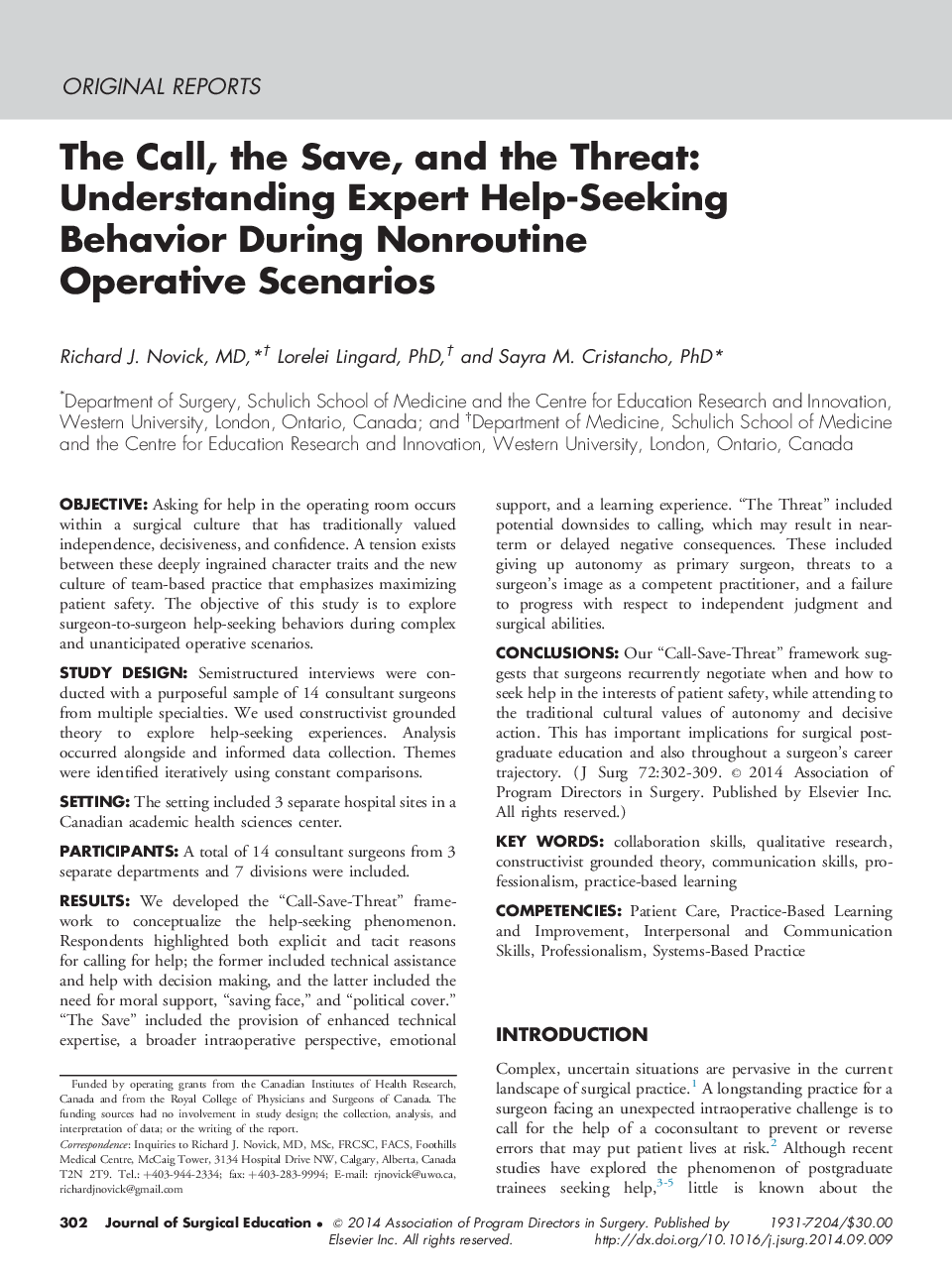| کد مقاله | کد نشریه | سال انتشار | مقاله انگلیسی | نسخه تمام متن |
|---|---|---|---|---|
| 4297672 | 1288327 | 2015 | 8 صفحه PDF | دانلود رایگان |

ObjectiveAsking for help in the operating room occurs within a surgical culture that has traditionally valued independence, decisiveness, and confidence. A tension exists between these deeply ingrained character traits and the new culture of team-based practice that emphasizes maximizing patient safety. The objective of this study is to explore surgeon-to-surgeon help-seeking behaviors during complex and unanticipated operative scenarios.Study DesignSemistructured interviews were conducted with a purposeful sample of 14 consultant surgeons from multiple specialties. We used constructivist grounded theory to explore help-seeking experiences. Analysis occurred alongside and informed data collection. Themes were identified iteratively using constant comparisons.SettingThe setting included 3 separate hospital sites in a Canadian academic health sciences center.ParticipantsA total of 14 consultant surgeons from 3 separate departments and 7 divisions were included.ResultsWe developed the “Call-Save-Threat” framework to conceptualize the help-seeking phenomenon. Respondents highlighted both explicit and tacit reasons for calling for help; the former included technical assistance and help with decision making, and the latter included the need for moral support, “saving face,” and “political cover.” “The Save” included the provision of enhanced technical expertise, a broader intraoperative perspective, emotional support, and a learning experience. “The Threat” included potential downsides to calling, which may result in near-term or delayed negative consequences. These included giving up autonomy as primary surgeon, threats to a surgeon’s image as a competent practitioner, and a failure to progress with respect to independent judgment and surgical abilities.ConclusionsOur “Call-Save-Threat” framework suggests that surgeons recurrently negotiate when and how to seek help in the interests of patient safety, while attending to the traditional cultural values of autonomy and decisive action. This has important implications for surgical postgraduate education and also throughout a surgeon’s career trajectory.
Journal: Journal of Surgical Education - Volume 72, Issue 2, March–April 2015, Pages 302–309